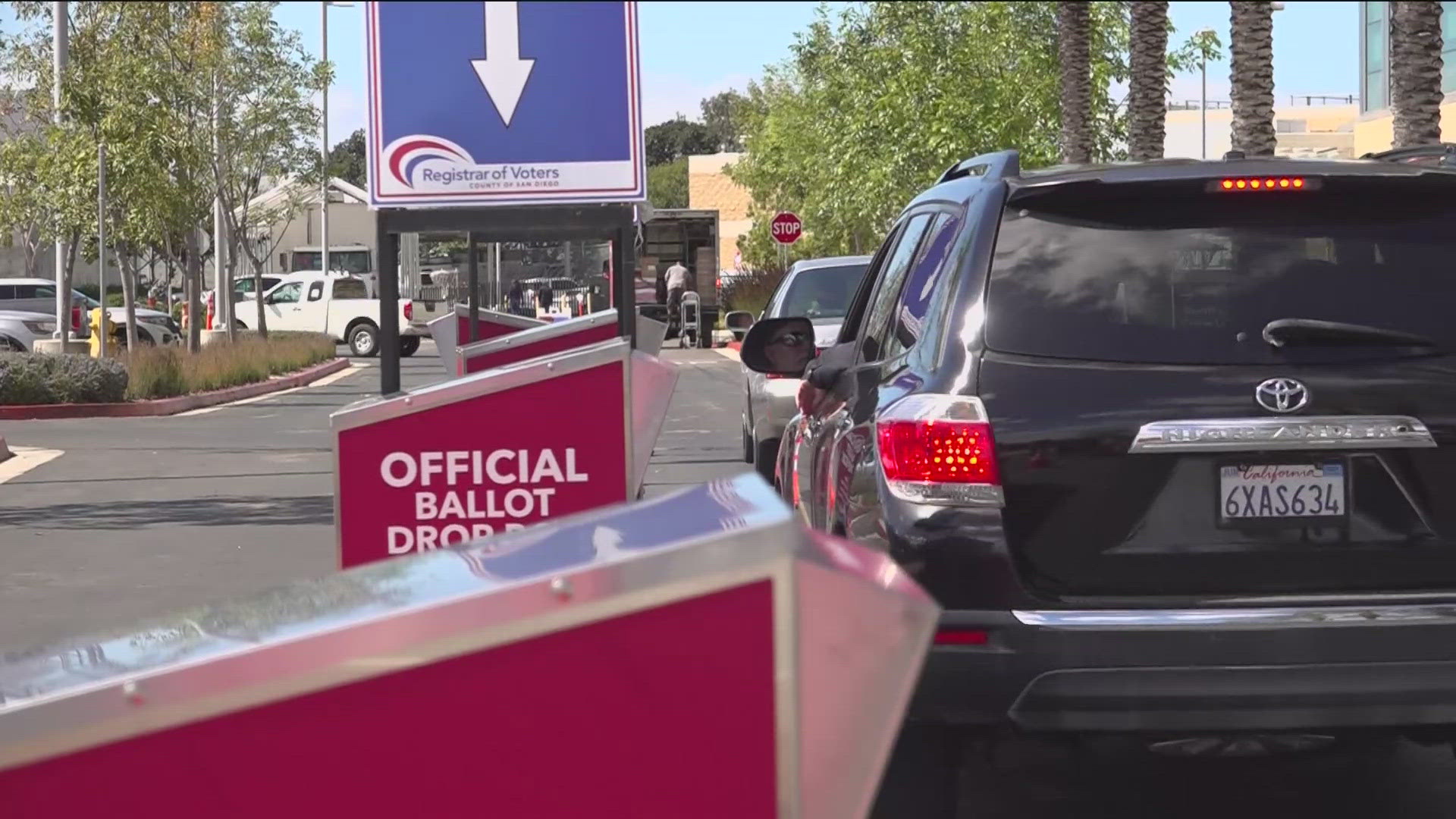SAN DIEGO — It appears that San Diegans are torn on measure E as votes continue to be counted. The measure was on the ballot to raise the city's sales tax to help fund $400 million for infrastructure needs.
The "No" votes continue to lead as of Thursday evening. The "Yes" votes have made up several percentage points since initial results were announced.
San Diego Measure E | Live Election Results:
Measure E, known as the San Diego Transaction and Use Tax, would increase the tax on transactions in the city by 1%, bringing the total sales tax to 8.75%. The current rate in the city, 7.75%, leaves the city tied for the fourth-lowest of the state's 482 municipalities and lower than nine of the county's 18 cities, according to the California Department of Tax and Fee Administration.
The additional $400 million raised by the proposal can legally go to a wide range of city needs, including infrastructure projects, core services and general city needs -- money desperately needed to maintain San Diego, officials said.
"In its Fiscal Year 2025-2029 Five-Year Capital Infrastructure Planning Outlook, the city has identified critical infrastructure maintenance and construction needs in areas such as the city's roads, sidewalks, streetlights, parks, libraries, and other facilities totaling $9.25 billion over the next five fiscal years, which amount does not include the costs of maintaining public safety services like police, fire, and emergency services," reads a city policy paper.
Other cities in San Diego County also had money on the ballot, with El Cajon, La Mesa and Oceanside looking for renewals of existing sales taxes and cities such as Encinitas, Escondido, Lemon Grove, San Marcos, Santee and the county of San Diego seeking to add additional taxes.
All of the proposals have a time limit, ranging from 10-20 years. The city of San Diego's ballot measure would continue "until ended by voters, requiring citizen oversight and independent audits," the ballot measure reads. The open-endedness of the timeline and what the funds could potentially be used for has opponents worried about its scope.
Haney Hong, president and CEO of the San Diego County Taxpayers Association, said the voters responded to responsible money management and transparency.
"Taxpayers want to support local governments when they trust their hard-earned dollars will be well spent," he said. "With how expensive it is to live in California, the voters in East County, Oceanside, and Chula Vista seem willing to chip in so long as they believe their local government will run well and deliver."
The two other city measures on Tuesday's ballot appear to have both passed.
San Diego Measure C | Live Election Results:
Measure C, which appears to have passed, will eliminate the need for San Diego Unified School District Board of Education primary elections when two or fewer candidates are running for a position. The candidates would automatically move to a general election.
San Diego Measure D | Live Election Results:
Measure D, proposed by City Attorney Mara Elliott, appears to have passed. It sought to make the city's Ethics Commission more independent from political machinations. The measure will allow the commission to be eliminated by voter approval only, and will allow the commission to appoint its own executive director without City Council approval, initiate its own investigations and law enforcement referrals, have expressly defined qualifications and term limits, and is provided "sufficient resources," the ballot measure reads.

